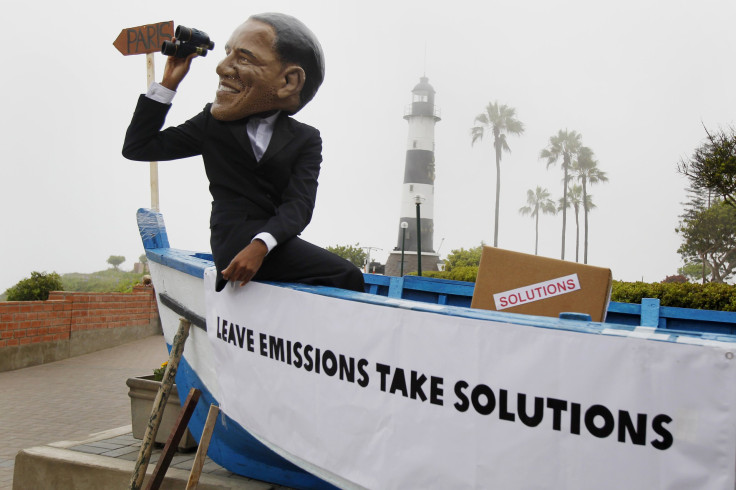Climate Change: White House Launches $34M Plan To Help Developing Nations Mitigate Climate Risk

Days after leaders of the G7 nations -- which includes the United States -- pledged to completely eliminate the use of fossil fuels by 2100, the White House on Tuesday announced new measures to help developing countries deal with climate change. The $34 million initiative involves several U.S. government agencies, the British government and private businesses such as Google.
The announcement of the new initiative came amid a major boost to the Obama administration-led efforts to curb greenhouse gas emissions by U.S. power plants. On Tuesday, the United States Court of Appeals for the District of Columbia Circuit dismissed a lawsuit by some of the country’s largest coal companies and coal-producing states, which had challenged the Environmental Protection Agency’s (EPA) proposed rule to reduce emissions from power plants.
“The partnership, Climate Services for Resilient Development, will provide needed climate services -- including actionable science, data, information, tools, and training -- to developing countries that are working to strengthen their national resilience to the impacts of climate change,” the White House said, in a statement released Tuesday.
Since records began in 1880, global temperatures have risen by 1.4 degrees Fahrenheit. And, over the last 100 years, the global average sea level has gone up by seven inches -- a phenomenon whose effect is already being felt by island nations in the Pacific Ocean and people living in coastal regions. According to recent studies, as global temperatures rise, the accompanying rise in extreme weather events is expected to impact residents of low-income countries the most.
“No single entity is capable of addressing the vast needs for improved climate services in these nations: for everything from projections of future sea-level rise that help planners identify places to build and develop that are out of harm’s way, to maps that overlay population, infrastructure, and climate data to help decision makers target resources to areas of greatest vulnerability,” the White House said, in the statement.
The EPA’s plan will now be revealed in its final form in August -- months before a crucial climate summit in Paris.
Meanwhile, climate scientists and environmentalists criticized leaders of the G7 nations for failing to include binding emission-reduction targets in their communiqué, and for failing to detail concrete steps to achieve the promised “decarbonization” of the global economy by the end of the century.
“In my view, the science makes clear that 2050 or 2100 is way too far down the road,” Michael Mann, director of the Earth System Science Center at Penn State University, told Climate Central. “We will need near-term limits if we are going to avoid dangerous warming of the planet.”
© Copyright IBTimes 2024. All rights reserved.






















